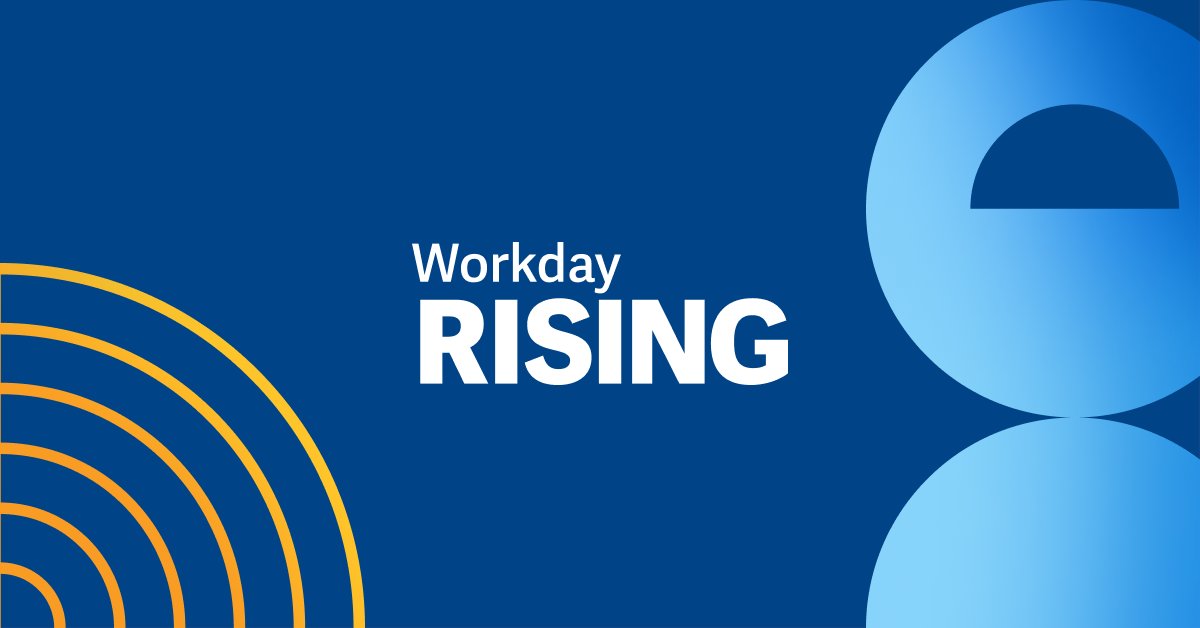Workday Rising 2023: Workday Doubles Down on AI Transforming the Human Work Experience
Principal Analyst
Senior Analyst

Beginning September 26, we joined with 15,000 Workday customers, employees, partners, and prospects to learn more about Workday’s plans to enhance its product suite at the largest Workday Rising to date. In line with so many conferences in 2023, discussions and messaging around the role and use of artificial intelligence (AI) were top-of-mind throughout the event.
Leadership Changes
Of particular note was a leadership handoff from Aneel Bushri, co-founder and co-CEO, to Co-CEO Carl Eschenbach, who will become the sole CEO in February 2024. Bushri will remain involved with Workday as a full-time executive chair and chair of the board of directors and will continue to bring his product focus to all of Workday. Since Eschenbach has assumed the role of co-CEO, Workday has accelerated its sales execution focus, while Co-President Sayan Chakraborty, who has a deep technology background and focus, is pushing all product and technology areas forward.
New Functionality Added to Workday Student
Of interest to the 300 higher education institutions in attendance, Workday announced that it added Student Journeys to Workday Student. This new functionality promises to provide an enhanced student experience, addressing the many pain points throughout the student lifecycle. Student Journeys features an easy-to-use interface and provides a rich data set on how students use the various journeys.
The Workday Student product team continues to roll out new functionality to support its expanding customer base, especially the R1 and large system customers currently going live. We expect Workday to move faster on AI functionality as it increases its customers, producing more robust data sets. Workday has about 40 live Student institutions and expects to exceed 100 live customers in the next few years.
Up-leveling Workday’s AI Game
As many Workday presenters noted, AI has been a focus at the company for some time. Over the past decade, the development team has been integrating AI and machine learning (ML) functionality into the platform. However, it also recognized that recent advances in generative AI have created opportunities for new and innovative applications to increase productivity and efficiency.
Throughout the week, Workday showcased new generative AI functionality in multiple products, including Workday Human Capital Management (HCM), Financial Management, and Workday Adaptive Planning. What sets Workday apart from many of its competitors is its clean and cohesive customer data set from its more than 13,000 customers. With this data (and the agreement of each customer whose data is included), Workday is training its AI models with billions of parameters. Training models on data from a single system and data model will be a significant competitive advantage as Workday’s AI applications go mainstream.
Ethics and Transparency with AI
Bushri emphasized Workday’s philosophy to use AI to enhance human performance and experience—not replace people. He also noted his belief that this technology will be as transformative as the cloud was more than a decade ago. Workday reinforced its philosophy throughout the week to demonstrate how it’s accelerating the AI development cycle while, through a rigorous certification process with its new Workday AI Marketplace coming in 2024, ensuring that selected partners also adhere to the guiding principles for AI’s ethical and responsible use.
Users have transparency into the data used in predictions, giving users real-time control over the data sources. This transparency will help build trust within organizations as these applications are deployed throughout the enterprise.
AI Workday in HCM and Finance
Among the initial AI rollout, HCM led the way with new AI-enabled functionality, including a new AI-driven Manager Insights Hub that surfaces personalized recommendations using customer Workday data and identifies flexible teams based on skills.
Additionally, the development of team member growth plans and job descriptions based on the data in Workday are potential time savers, along with automated receipt processing in Expenses.
Workday Adaptive Planning
Workday continues to integrate Workday Adaptive Planning more tightly into the Workday ecosystem with enhancements, including new integrated functions between Financial Management, HCM, and Adaptive Planning. A new ML-enabled predictive forecaster was also announced. Of course, not to be outdone, Workday announced a new conversational AI planning capability with the promise to decrease the effort around planning applications significantly.
Workday Extend
To accelerate the development cycle, Workday Extend will be the vehicle to achieve new and innovative functionality for customers and partners. Workday will add a new AI gateway functionality to the Workday Extend platform, providing access to Workday AI APIs to facilitate including AI in application development. Extend will also have new no-code development enhancements available in early 2024.
Key Takeaways
Workday’s long history of AI and ML innovation and inclusion in its products was relatively quiet until 2023, when the introduction of ChatGPT forced Workday to be more explicit about its plans, including generative AI. It brings its AI plans forward with an organizational maturity evident in every discussion. Along the way, Workday continues to foster excitement from its customers with its own brand of customer focus and an impressive amount of product delivery. The partner ecosystem expansion announced last year will continue to be a strategic vehicle to drive innovation in functionality and new AI applications. As it faces increased competition in higher education from the Oracle Student and Ellucian’s Banner Student SaaS products, Workday will continue to mature the product and innovate the platform it is a part of to stay ahead in the student cloud race.
Categories
- Academic Administration
- Advancement
- AI and ML
- Content Management
- CRM Platforms
- Customer Experience (CX)
- Cybersecurity
- Data Management and Analytics
- Enterprise Portals and Mobile Apps
- Event Management
- Finance
- HCM/HR
- IT Tools and Infrastructure
- Life at Tambellini
- Services
- Student
- Teaching and Learning
- Technology Leadership
- Thought Leadership
- Uncategorized
Share Article:

Additional Authors:

Other Posts From this Author:
© Copyright 2025, The Tambellini Group. All Rights Reserved.